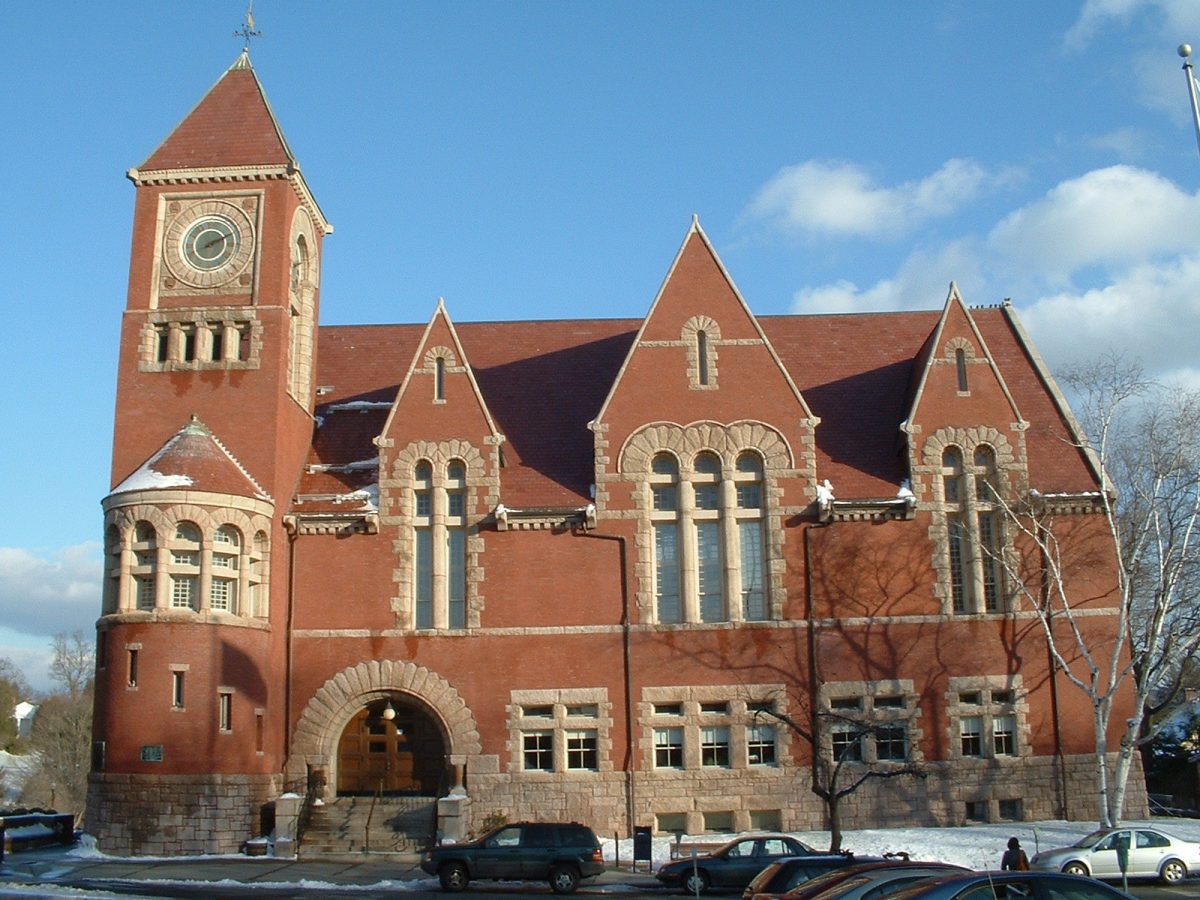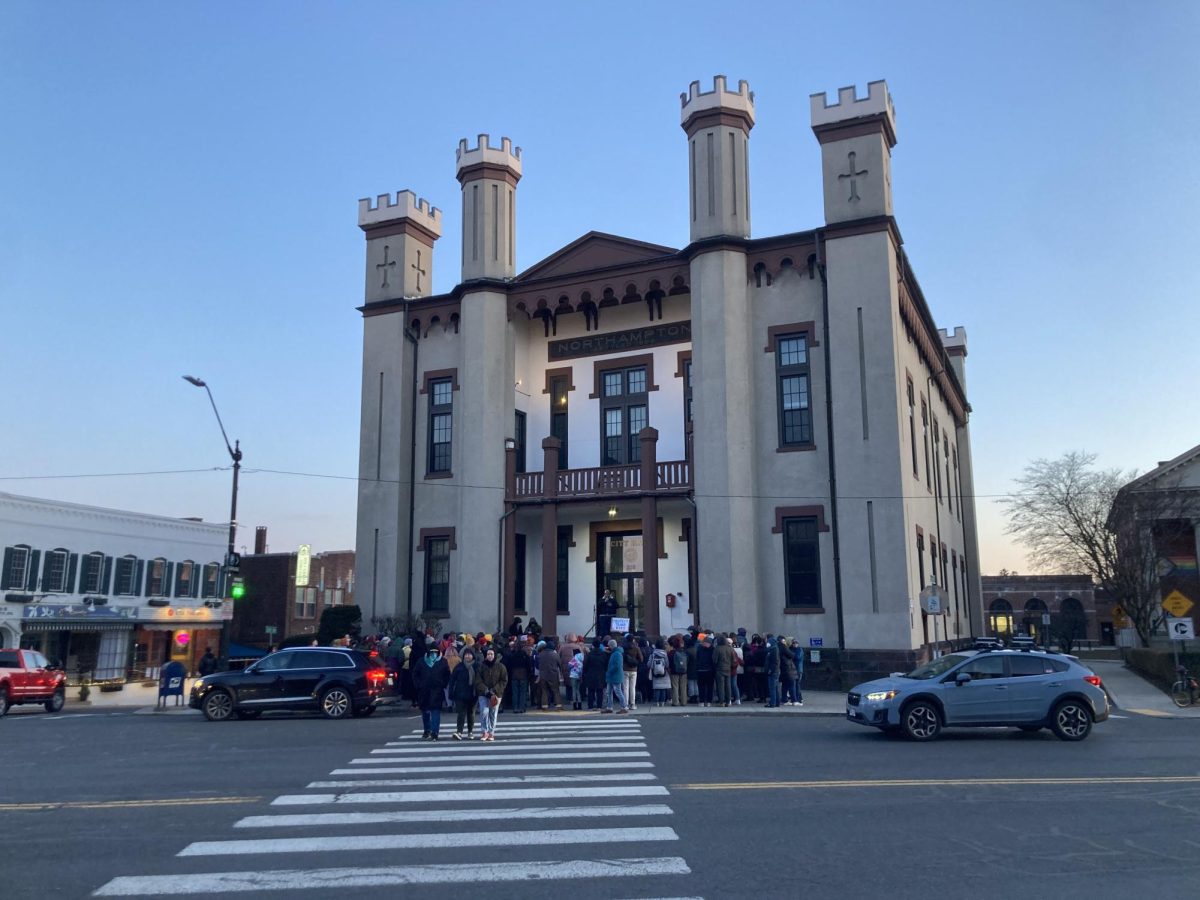
An overnight parking ban will be in effect throughout Amherst from Dec. 1, 2013 to April 1, 2014, according to Amherst Chief of Police Scott P. Livingstone.
The parking ban, which will be in effect from 2 a.m. to 6 a.m. every day will make it easier for the Department of Public Works to keep the roads clear of snow, according to Captain Chris Pronovost of the Amherst Police Department.
Pronovost explained that different cities use a multitude of tactics to keep the roads clear for plows.
“We find (the parking ban) to be the most efficient way of doing that in (Amherst),” he said.
The ban will be in effect throughout downtown Amherst as well as on the outlying streets in the town’s more rural sections.
Residents who normally park their vehicles on the street outside their homes are not exempt from the rule. There aren’t any special accommodations for handicapped people either.
According to a Nov. 12 press release, overnight parking will be allowed in the lower level of the Boltwood Parking Garage, although it is necessary to pay the meter between 8 a.m. and 8 p.m. six days a week.
People can also park in the Pray Street Lot, where meters are enforced from 9 a.m. to 6 p.m. Monday through Saturday, according to the press release.
The Amherst Police Department will issue a warning for a first offense. A second offense will result in a $25 ticket. After a third offense, the vehicle will be towed, at which time the owner will have to pay upwards of $100 to retrieve the vehicle, as well as another $25 fine.
If a person receives their third offense, the vehicle will be towed no matter what the weather is, the press release stated.
In the case of a snowstorm, the warning provisions will not be followed.
“If the DPW sees that there are cars, they’ll call us to get them out of there first before they attempt to plow,” Pronovost said. “(Otherwise) they have to … change their whole pattern of where they’re plowing or they have to make a large swoop around (the vehicle) and it just makes a mess.”
The parking ban is nothing new to longtime Amherst residents. Pronovost estimated that the ban was originally instituted in the 1960s or ‘70s.
The parking ban was voted in as a town bylaw long ago. Today the Amherst select board can vote on and make revisions to the law, and the Amherst Police Department enforces it.
Pronovost said the police have had fewer and fewer problems with violators of the parking ban in recent years.
“We’ve actually seen a decline in the number of actual fines issued and vehicles towed,” he said. “I think that decrease is probably because we’re doing a better job getting the word out (about the ban).”
The last week of November, police officers start putting warning tags on vehicles to alert owners to the parking ban before it begins so that they can make arrangements to park elsewhere.
Residents of Amherst can also view announcements made by the Amherst Police Department online. Information about the parking ban can be found at www.amherstma.gov, as well as on its Facebook page.
For students living off campus, Pronovost suggests they try to work with their landlords to come up with alternative places to park.
If that proves unsuccessful, “then unfortunately (students) have to try to work into their schedule moving the car to the lower level (of the parking garage) or to the Pray Street lot, and then getting back there in the morning to move it back out,” Pronovost said. “I know that can be really difficult.”
“I’ve heard of people trying to locate parking places from other private places but that’s difficult too because it’s at a premium around here,” he continued.
Pronovost believes residents and students can successfully avoid violations of the parking ban if they develop a plan where they routinely move their vehicles.
“Say you move (your vehicle) at eight o’clock at night,” he said. “You’re probably going to find a space in the lower level (of the parking garage) and you can still catch a bus back to wherever you’re trying to get to because the buses are running. … Then in the morning before you head to your class you have to make a detour and go move your car. It’s a pain, but it’s doable.”
Pronovost is hopeful the Amherst Police Department will not have many problems with violators this year due to raised awareness of the parking ban and is “hoping that people will find a good alternative.”
Shelby Ashline can be reached at [email protected].












